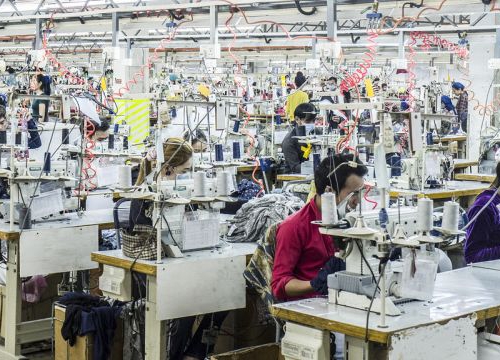Gender Equality: Clarifying the Responsibilities of Companies under International Human Rights Law


UN Woman
10 December 2018
Our new publication Gender Responsive Due Diligence for Business Actors: Human Rights-Based Approaches focuses on the direct responsibilities of business actors to respect and, in some circumstances, facilitate gender equality guarantees under international human rights law.
As such, it details corporate human rights obligations to respect the equal rights of men, women and gender non-conforming people within the workplace, but also in relation to the wider economic, social and cultural impact of their activities. It uses examples from global supply chains, land-based agricultural investments and conflict zones to documents existing business practices that affect the realization of gender equality. The publication also provides recommendations as to how companies could engage in human rights due diligence to more effectively prevent, mitigate, account for and remedy gender-related inequalities.

Incorporating a Gender Perspective into the United Nations Guiding Principles on Business and Human Rights
This publication contributes to the United Nations (UN) working group on business and human rights’ consultation process on the incorporation of a gender perspective into the UN Guiding Principles on Business and Human Rights. Several of the main findings were presented during a roundtable on gender responsive human rights due diligence at the 2018 UN Forum on Business and Human Rights.
Following additional regional and international consultations – including a final meeting organized by the Geneva Academy in January 2019 –, the working group will present its guidance to the Human Rights Council in June 2019.
‘Besides this support to the UN working group, the publication will also be of use to companies, civil society organizations, intergovernmental organizations, governments, National Human Rights Institutions and academics who are interested in ensuring that companies respect and promote gender equality within their activities and areas of influence' underlines Dr Joanna Bourke Martignoni, former Senior Research Fellow at the Geneva Academy and co-author of the publication.

Going Beyond Minimum Standards: Gender Responsive Human Rights Due Diligence Processes
The publication highlights that businesses must go beyond minimum standards to respect human rights standards related to gender equality and also consider ways in which they might use their influence to facilitate gender-related human rights guarantees by identifying, confronting and helping to dismantle structural forms of inequality.
As such, companies should implement gender responsive human rights due diligence (HRDD) processes in order to comply with their obligations to respect and, in some circumstances, facilitate gender equality guarantees under international human rights law.
‘HRDD processes necessitate the integration of a gender perspective within all areas of a company’s operations in order to identify, prevent, mitigate and remedy gender-based discrimination and inequalities’ explains Dr Joanna Bourke Martignoni.
‘Our publication details the key elements and components of HRDD processes. These range from participatory human rights impact assessments, to the implementation of mitigation measures for gender discrimination, the systematic collection and analysis of disaggregated data, ongoing monitoring and transparent information sharing, as well as the development of accessible and appropriate grievance mechanisms and remedies’ she adds.
The publication shows that in some instances, companies are already participating in initiatives that could lay the foundations for HRDD, and are putting in place policies and procedures that challenge gender discrimination. In certain cases, they are even taking a role in policy advocacy on these issues.













